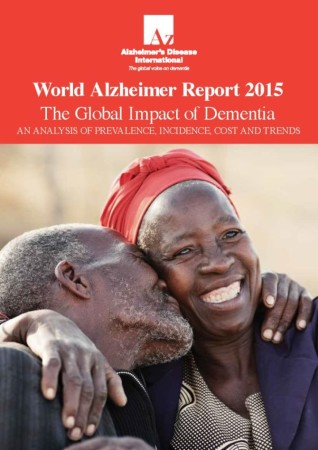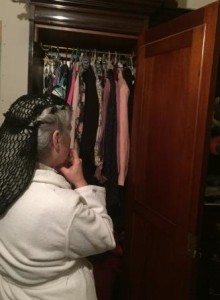What’s behind the massive growth of Alzheimer’s and dementia diagnoses?
 In November, the U.S. will be keeping Alzheimer’s and caregiver awareness in the forefront with National Alzheimer’s Awareness Month and National Family Caregivers Month.
In November, the U.S. will be keeping Alzheimer’s and caregiver awareness in the forefront with National Alzheimer’s Awareness Month and National Family Caregivers Month.
During World Alzheimer’s Month in September, Alzheimer’s Disease International released the World Alzheimer’s Report 2015: The Global Impact of Dementia.
Let’s look at these numbers and see what they mean.
- An estimated 47 million people live with dementia worldwide.
- 1 person is diagnosed with dementia every 3.2 seconds. That’s almost 20 a minute.
- We’ll have an EPIDEMIC if we don’t already. Multiply 20 diagnoses of dementia every minute by 60 minutes. That’s 1,200 people diagnosed each hour, worldwide or 27,000 people every day. If you multiply this figure by 365 days in a year, you’re looking at almost 10 million new diagnoses a year.
- Most people who live with dementia live in low- and middle-income countries (LMICs) and remain undiagnosed.
- To think in the 1990s when my father was diagnosed, only 18 million people lived with dementia, worldwide.
- In just twenty years, we’ve seen a 261% growth. Current estimates tout an increase to over 131 million by 2050. That a 279% increase from today’s numbers.
- In the U.S., 28 million baby boomers will get Alzheimer’s by mid-century, according to the Alzheimer’s Association International Conference (AAIC).
- This will require nearly 25% of Medicare spending in 2040 according to the Lewin Group reporting for the AAIC.
- If a new treatment for Alzheimer’s disease were discovered by 2025, the Alzheimer’s Association estimates $220 billion could be saved within five years according to the Alzheimer’s Association’s report, Changing the Trajectory of Alzheimer’s Disease: How a Treatment by 2025 Saves Lives and Dollars.
The implications of these reported numbers
The increase in the number of diagnoses will drive policy  makers to find ways to save on healthcare costs that will otherwise bankrupt even wealthy countries. I’d ponder the notion that the increasing diagnoses of Mild Cognitive Impairment (MCI) may help divert benefits paid to people with dementia. For more information about this, read VOICES with Dementia – What the change in diagnosis from dementia to MCI means.
makers to find ways to save on healthcare costs that will otherwise bankrupt even wealthy countries. I’d ponder the notion that the increasing diagnoses of Mild Cognitive Impairment (MCI) may help divert benefits paid to people with dementia. For more information about this, read VOICES with Dementia – What the change in diagnosis from dementia to MCI means.
As our population grows older and more people are diagnosed in lower middle-income countries, we’ll see these numbers increase. A report earlier this year sees these numbers declining to greater awareness of modifiable health factors such as exercising our bodies and our brains and eating healthier nutritious meals. Of course, we won’t have to wait three decades if there’s a cure or even a solid course for prevention.
During the years when the number of people with dementia will increase, millions of family and professional caregivers will continue, often quietly behind the scenes, ensuring the best quality of life and care possible for loved ones. We must ensure that policies best serve the millions of families who will need the support as dementia severely impacts their lives around the world. Author and Activist, Ai-jen Poo shares an inspiring vision of caregiving. [6/8/2025 TCV Update: YES! Media to Sunset in June 2025 After Nearly 30 Years of Independent Journalism]
] Invest in a Care Grid—a network of well-trained homecare workers, similar to nations’ investments in setting up electrical grids and national highway systems. She urges that “we … shift the stories we tell ourselves about the value of elders, the care they need, and later, life itself.”
For more information, please click on –








